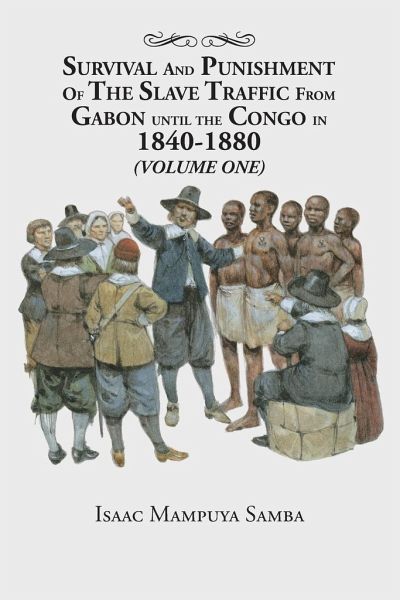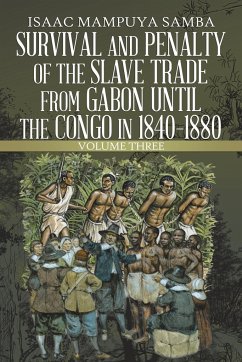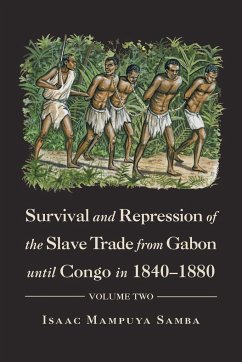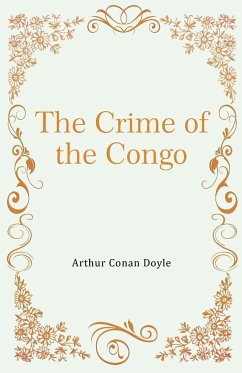
Survival and Punishment of the Slave Traffic from Gabon Until the Congo in 1840-1880 (Volume One)

PAYBACK Punkte
8 °P sammeln!
We studied the survival and the suppression of big businesses in populations ranging odds Ogoou until the coast of the Congo. The captured slaves during the wars or raids were dragged on long sunny slopes and stored on board the slave ships. One should know that the Negro was therefore a commodity before becoming slave. This Negro commodity should be explained in two contexts: that of trafficking, who grabbed himself in Africa before it was sold in America and the slave system which required it to stress forced labor in colonial regime. The slave-money management, with its organized markets an...
We studied the survival and the suppression of big businesses in populations ranging odds Ogoou until the coast of the Congo. The captured slaves during the wars or raids were dragged on long sunny slopes and stored on board the slave ships. One should know that the Negro was therefore a commodity before becoming slave. This Negro commodity should be explained in two contexts: that of trafficking, who grabbed himself in Africa before it was sold in America and the slave system which required it to stress forced labor in colonial regime. The slave-money management, with its organized markets and regulations that was detrimental to the freedom of normal financial affairs and atrocities that had succeeded for centuries, moved him to public opinion. Abolitionists of trafficking and fierce supporters of the emancipation of slaves began a fierce struggle against all people interested in maintaining the forced exploitation of blacks by whites. In 1845 it was concluded by the Franco-British agreement to end trafficking on the African coast. But the Atlantic slave economics, which lasted more than three and a half centuries, began to decline only in 1860 and almost completely ceased in 1880. At the same time, the great offensive was growing slavers from Zanzibar and Khartoum. The ruins of the ancient states of Loango Kakongo, Ngoio, and those kingdoms of Kongo, Teke, or Kimbundu are clear. The effects are still numerous. In fact, in this great doctoral thesis of Paris-Sorbonne, with 589 pages divided into two volumes, Samba Mampuya, or rather Isaac Mampuya Samba, under the direction of the late Professor Jean Ganiage (1924January 2012) and was supported in 1989, had precisely focused primarily on the following: international relationships colonization in Africa (from the nineteenth to the twentieth century) Gabon Congo slave investment slavery repression cruises slave banking in Congo (Democratic Republic) universal history (nineteenth century) slave accounts in Gabon history (nineteenth century)














